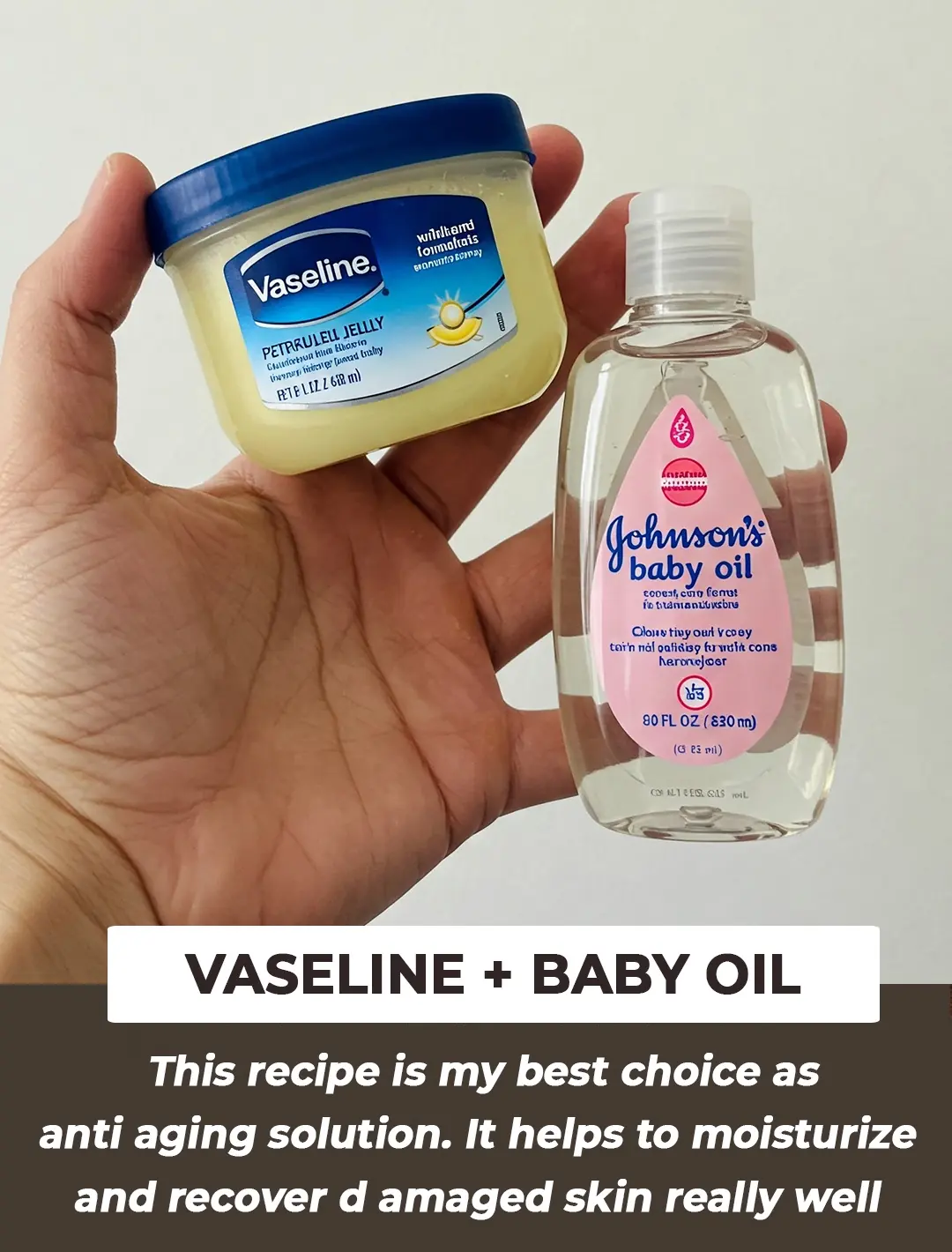
Medicinal Health Benefits of Turmeric, Curcumin and Turmeric Tea Based on Science
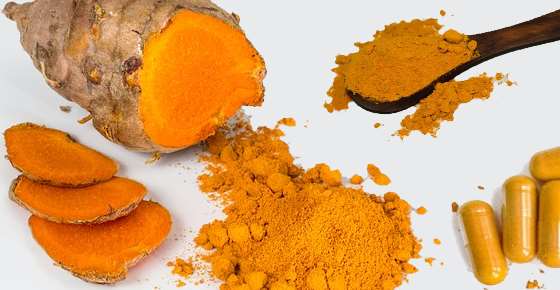
Turmeric is a golden spice long prized in traditional medicine. Its most active compound, curcumin, has been the subject of extensive research for antioxidant, anti-inflammatory, antimicrobial, and anti-aging effects. Studies link curcumin to benefits for inflammation, heart health, digestion, brain function, and even weight management. You can use turmeric in cooking, as a topical treatment, or as a daily supplement — and a simple turmeric tea is an easy way to get started.
What’s in Turmeric?
Turmeric (Curcuma longa) contains more than 100 bioactive compounds. The curcuminoids — and especially curcumin — are the components most researched for therapeutic effects. Turmeric also supplies small amounts of potassium, iron, B vitamins and omega-3s, but curcumin is the main medicinal compound.
A practical note: turmeric root is only about 3% curcumin by weight. To reach therapeutic levels in trials people often use concentrated curcumin extracts. Curcumin is poorly absorbed on its own, but co-taking piperine (black-pepper extract) raises absorption dramatically — by up to 2,000% in some studies. That’s why quality curcumin supplements usually include piperine or use formulations designed for better bioavailability.
Key Benefits Backed by Research
Powerful Anti-inflammatory Action
Curcumin inhibits multiple molecules involved in inflammation. Reviews and clinical trials show it reduces inflammatory markers and can be as effective as some non-steroidal anti-inflammatory drugs (NSAIDs) for certain conditions — often with fewer side effects. Typical therapeutic doses in studies range from about 500 mg to 2,500 mg of curcuminoids per day.
Pain Relief and Support for Arthritis
Curcumin’s anti-inflammatory effects translate into pain relief. Clinical trials report reduced joint pain and improved function in people with osteoarthritis and rheumatoid arthritis, sometimes comparable to conventional drugs such as diclofenac.
Cardiovascular Protection
Curcumin can improve several heart-health markers. Research shows it may reduce LDL cholesterol, improve endothelial (vessel) function, lower blood pressure markers, and reduce clot risk — all of which support cardiovascular health. Some trials used 600–1,500 mg curcuminoids and reported measurable benefits.
Brain Health & Neuroprotection
Curcumin is neuroprotective: it reduces oxidative stress and inflammation in the brain and has multiple mechanisms that support neuron health. Small clinical studies suggest benefits for memory and cognitive function, and preliminary trials report improvements in mild cognitive impairment and some dementia symptoms.
Antidepressant Effects
Clinical trials and meta-analyses show curcumin can improve mood and reduce symptoms of depression and anxiety in several weeks, likely via anti-inflammatory and neurotransmitter-modulating effects.
Digestive & Liver Support
Curcumin supports digestive health and has been used to help symptoms of IBS, peptic ulcers, Crohn’s disease and other GI conditions. It also boosts liver-protective enzymes and glutathione, assisting detox pathways.
Anti-diabetic & Metabolic Benefits
Curcumin improves blood sugar control and reduces some diabetes complications. Trials show improvements in fasting glucose, LDL, and markers of fatty liver disease. Even low doses have shown protective effects against diabetes-related complications.
Anti-cancer Potential
Laboratory and animal studies spanning decades show curcumin can inhibit tumor growth and metastasis in many cancer types. Early human studies are encouraging in specific cancers (breast, colorectal), and researchers are studying curcumin as an adjunct to conventional therapies. While promising, curcumin is not a standalone cancer treatment and more human trials are needed.
Skin Health & Wound Healing
Topical and oral curcumin improve acne, psoriasis, eczema and UV-related skin damage. Curcumin speeds wound healing and may reduce scarring by lowering inflammation and increasing collagen production.
Weight Management
Some randomized trials show curcumin supplementation (often with lifestyle changes) modestly improves weight loss, reduces waist circumference, and lowers inflammatory markers linked to obesity.
Turmeric Tea Recipe (Easy Anti-Inflammatory Brew)
A simple, effective way to enjoy curcumin is turmeric tea. Add black pepper to boost absorption.
Ingredients for one cup:
-
1–2 tsp fresh grated turmeric root or ½ tsp turmeric powder
-
1 cup boiling water
-
1/4 tsp freshly ground black pepper
-
Lemon and honey to taste (optional)
Method:
-
Add turmeric to boiling water, cover, and steep 5 minutes.
-
Stir in black pepper, strain, and finish with lemon/honey if desired.
-
Drink 1–2 cups daily for anti-inflammatory support.
You can also try golden milk (turmeric with milk or plant milk, cinnamon, and a little fat to improve curcumin uptake).
Safety, Side Effects & Who Should Be Cautious
Turmeric used in food is generally safe. Higher therapeutic doses or supplements can cause side effects in some people:
-
Blood sugar: Curcumin lowers glucose — diabetics should monitor levels and consult their doctor.
-
Pregnancy: High-dose curcumin may stimulate the uterus; pregnant women should avoid therapeutic doses.
-
Bleeding risk: Curcumin can increase bleeding risk; avoid if you take blood thinners or have bleeding disorders.
-
Gallbladder/kidney stones: Curcumin may worsen gallbladder conditions and can increase oxalate levels, which might affect kidney-stone risk.
-
Iron deficiency: High curcumin doses may impair iron absorption.
-
GI upset: A minority experience nausea, diarrhea or stomach discomfort.
Always check with a healthcare professional before starting high-dose curcumin supplements, especially if you have chronic conditions or take prescription medication.
Practical Tips
-
Choose curcumin supplements formulated for high absorption (piperine, liposomal or phytosome forms).
-
Pair turmeric with a small amount of healthy fat (olive oil, coconut milk) and black pepper to improve absorption from food and tea.
-
Expect weeks of consistent use for measurable benefits in inflammation, mood or skin; some outcomes require months.
-
For arthritis, many trials used about 1,000 mg/day of curcuminoids. For general anti-inflammatory support, lower daily intakes plus dietary turmeric can still help.
Bottom Line
Turmeric and its active compound curcumin are among the most studied natural anti-inflammatory agents. Evidence supports benefits across inflammation, joint pain, heart health, cognition, mood, digestion, liver protection, and metabolic health. Use culinary turmeric regularly, add black pepper and healthy fats, and consider a clinical-grade curcumin supplement (after consulting your healthcare provider) for higher-dose therapeutic purposes.
News in the same category

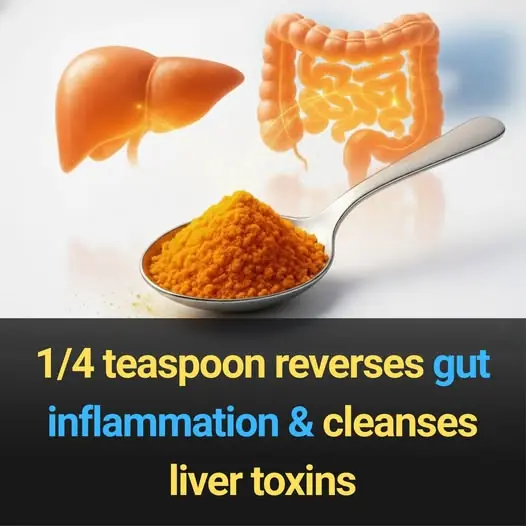
1/4 teaspoon reverses gut inflammation & cleanses liver toxins

Vitamin D3 cuts second heart attack risk by half

One Month Before A Heart Attack, Your Body Will Warn You Of These 7 Signs

4 vitamins to reverse neuropathy and damaged nerves – relieve foot & hand pain fast!

1st death linked to “meat allergy” spread by ticks, doctors confirm

Ignite Your Day: Eggs + Coffee for Unstoppable Stamina & Vitality
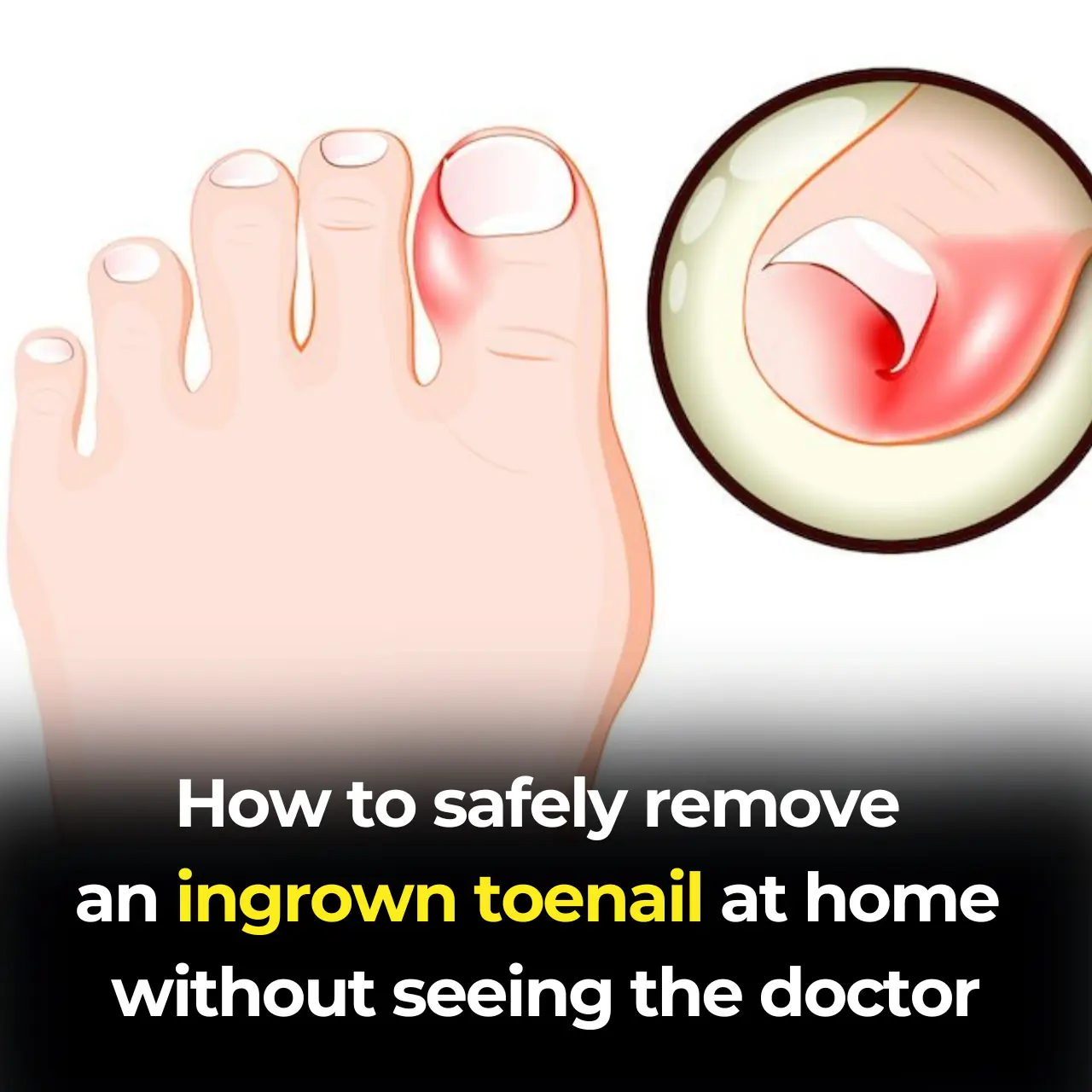
How to Effectively Remove a Painful Ingrown Toenail WITHOUT Having To Go To The Doctor

This Is What Happens To Your Lungs When You Dry Laundry Indoors
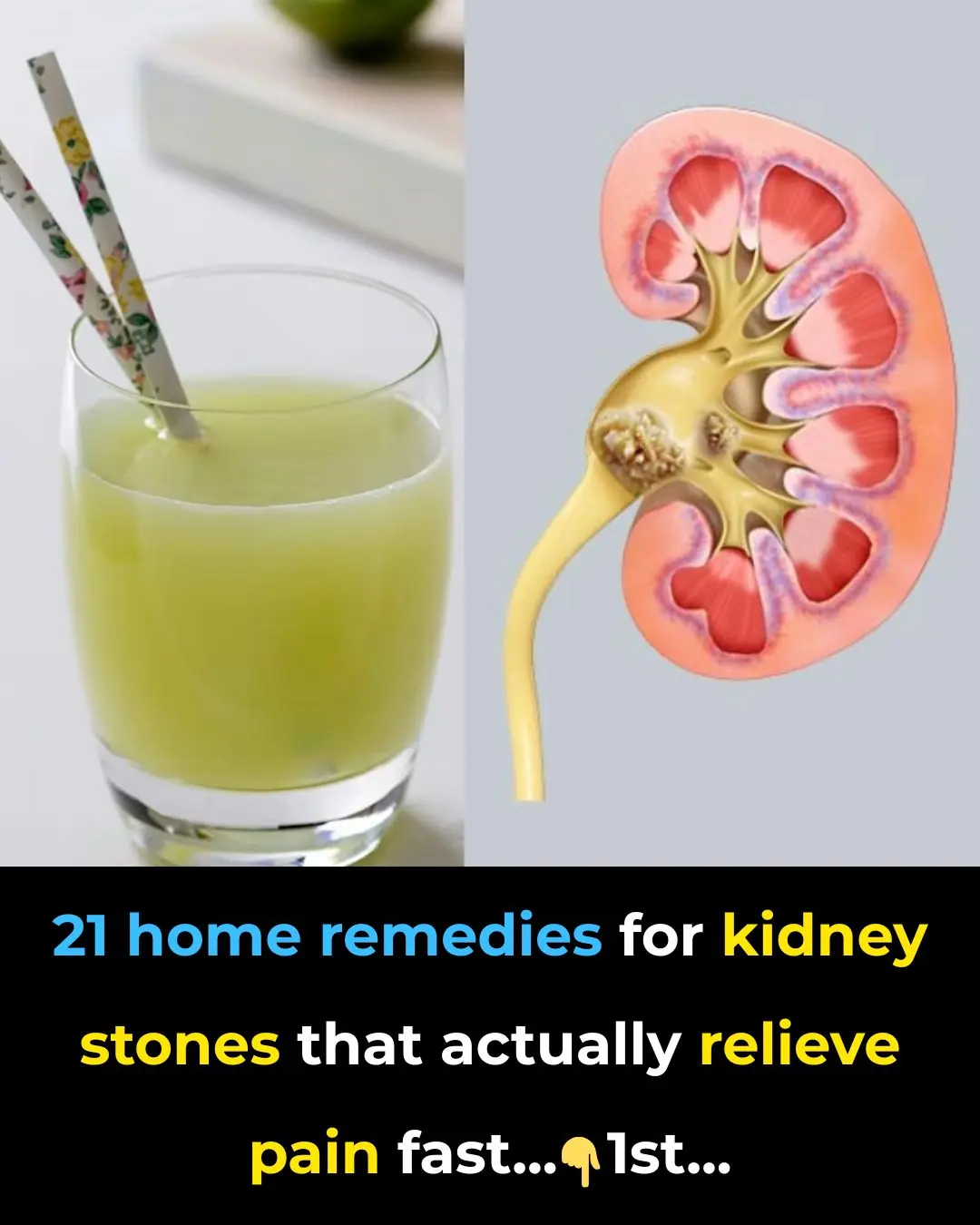
Home Remedies For Kidney Stones – 21 Remedies For Effective Pain Relief
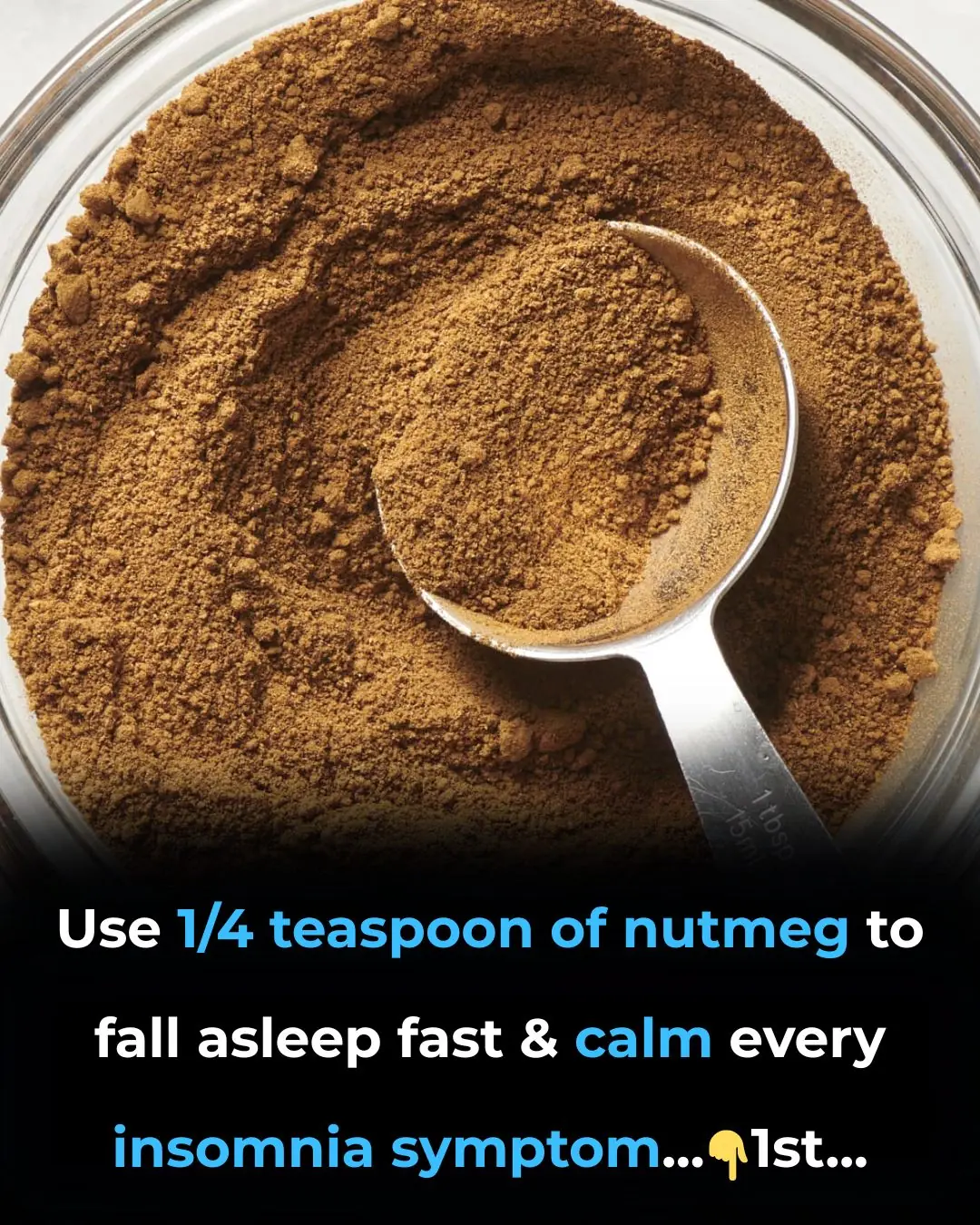
How to Use a ¼ Teaspoon of Nutmeg to Fall Asleep and Relieve ALL Your Insomnia Symptoms Overnight
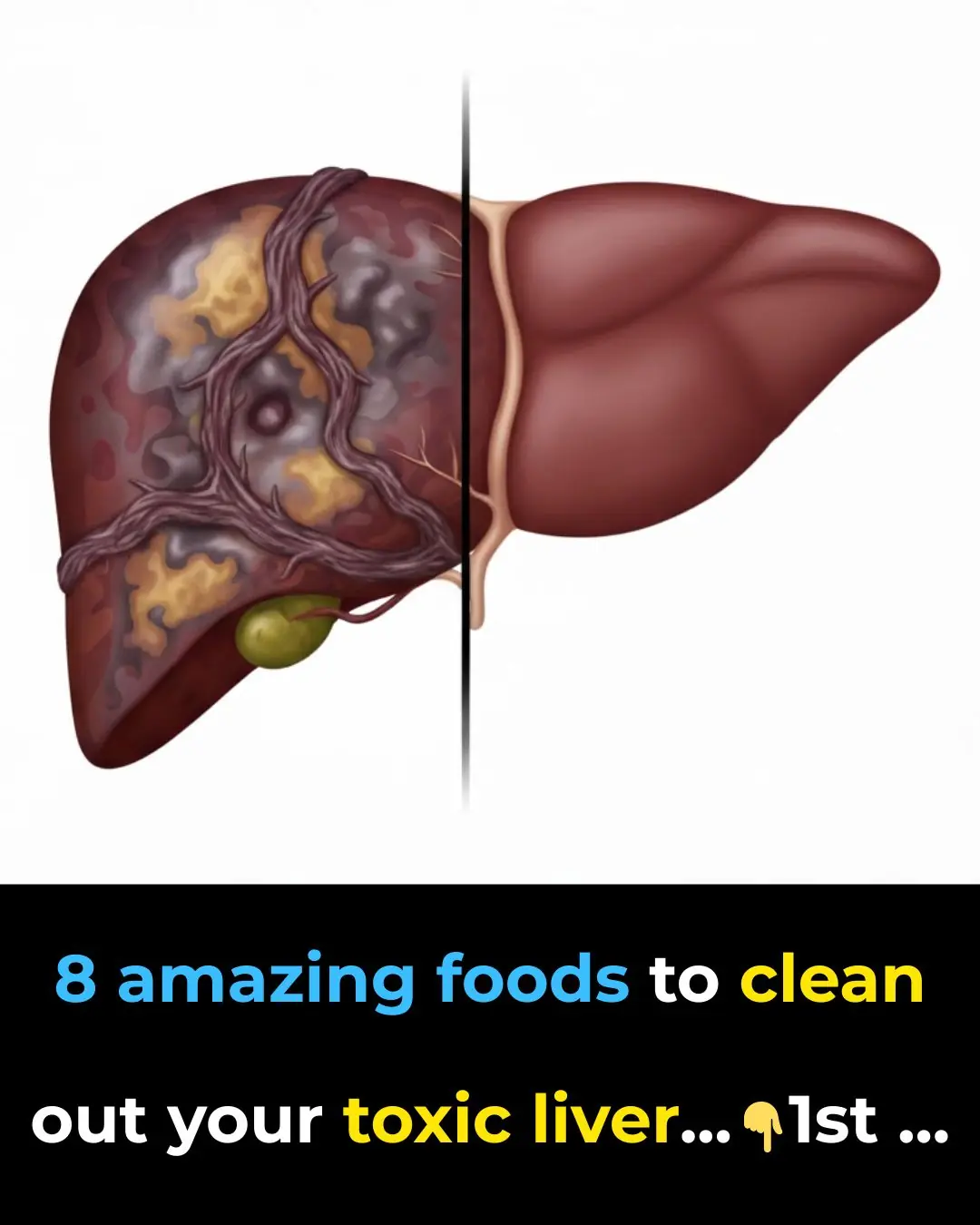
8 Amazing Foods To Clean Out Your Toxic Liver

Does The Inside Of Your Ear Itch

All lupus cases may be linked to a common virus, study finds
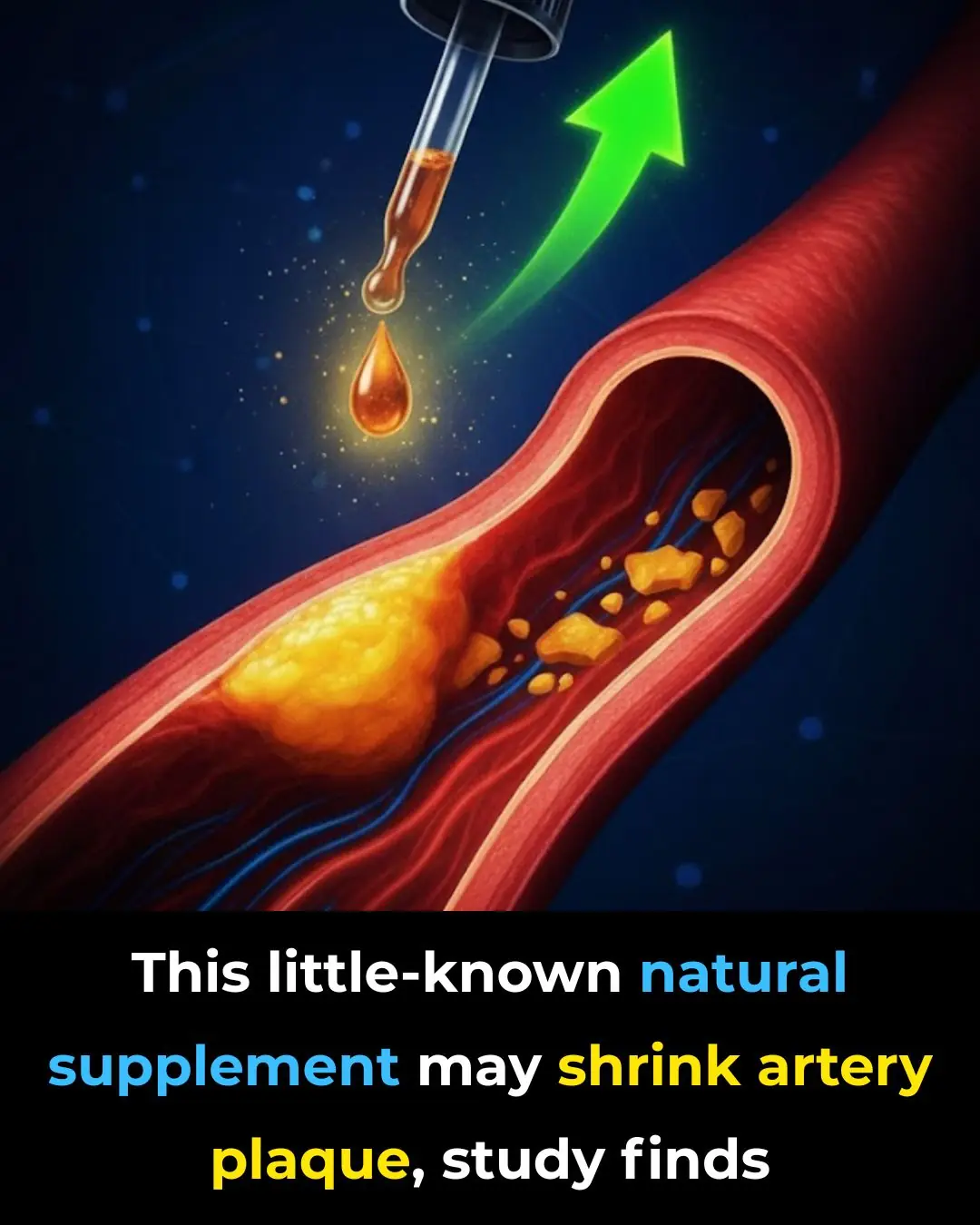
This little-known natural supplement may shrink artery plaque, study finds

This new million-person study just changed what we know about cholesterol and dementia

How to Survive a Heart Attack When You’re Alone: Immediate Steps You Must Take!
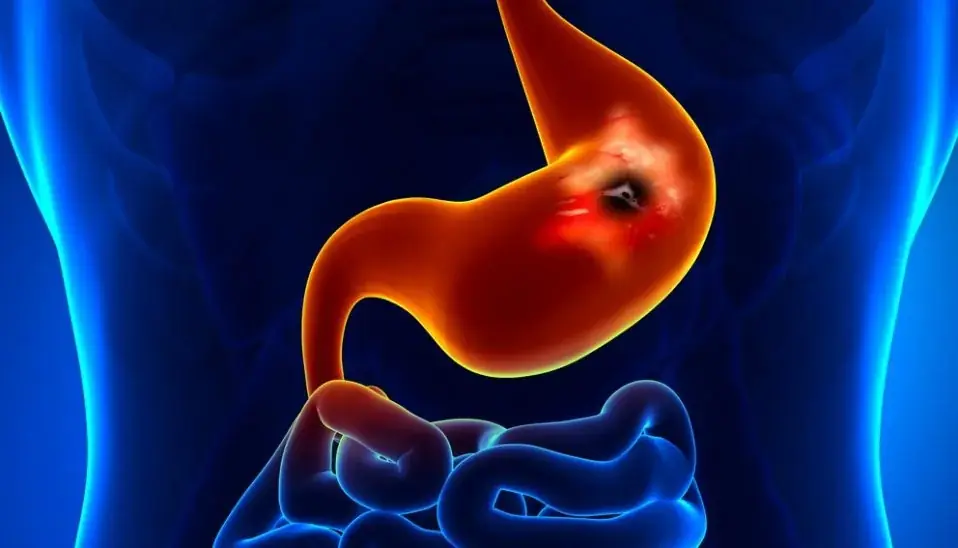
5 Early Warning Signs of Stomach Cancer: Even One Should Prompt a Medical Check-Up

THE MOST OVERLOOKED SIGNS THAT YOU’RE CONSUMING TOO MUCH SUGAR EVERY DAY
News Post

Man Isolates Himself From Society For Over 25 Years. What He Does Is Beyond Belief

Chilling Final Posts Emerge From TV Host’s 19-Year-Old Daughter Before Her Tragic Death In Los Angeles

Lady Frederick Windsor brands royal family’s lives ‘total hell’: ‘A form of torture’

Good Morning Britain's Ranvir Singh wows in flattering cord jumpsuit that 'fits perfectly'

What Your Belly Is Trying to Tell You

I’m A Celebrity star backs huge rule change after campmate left “a broken woman”

Roman Kemp vows to get revenge after discovering dad Martin's I'm A Celebrity sabotage

Sam Thompson shares fears over baby plans after introducing girlfriend to family

Better Luck Next Time ... And There Will Be One!!! Didn't Pass Bar Exam

Kelly Brook's movie is 'worst film ever' and it's on Amazon Prime now

‘I Know That Unequivocally Is Not True’: Stephen A. Told Cari Champion I Made You Why Would I Play You, But Jemele Hill Says It Wasn’t Like That

Olly Murs in shock split confession from Amelia: “I was in quite a bad place”

Prince William’s gesture to Sara Cox following incredible news: “The nation’s so proud of you”

My Neurologist Says, No Frontotemporal Dementia!!!

Strictly’s Craig Revel Horwood “stunned” after doctor’s devastating health diagnosis: “The horrible truth”

1/4 teaspoon reverses gut inflammation & cleanses liver toxins

Use This Kesh Scalp Serum Daily To Double Your Hair Growth In 1 Month
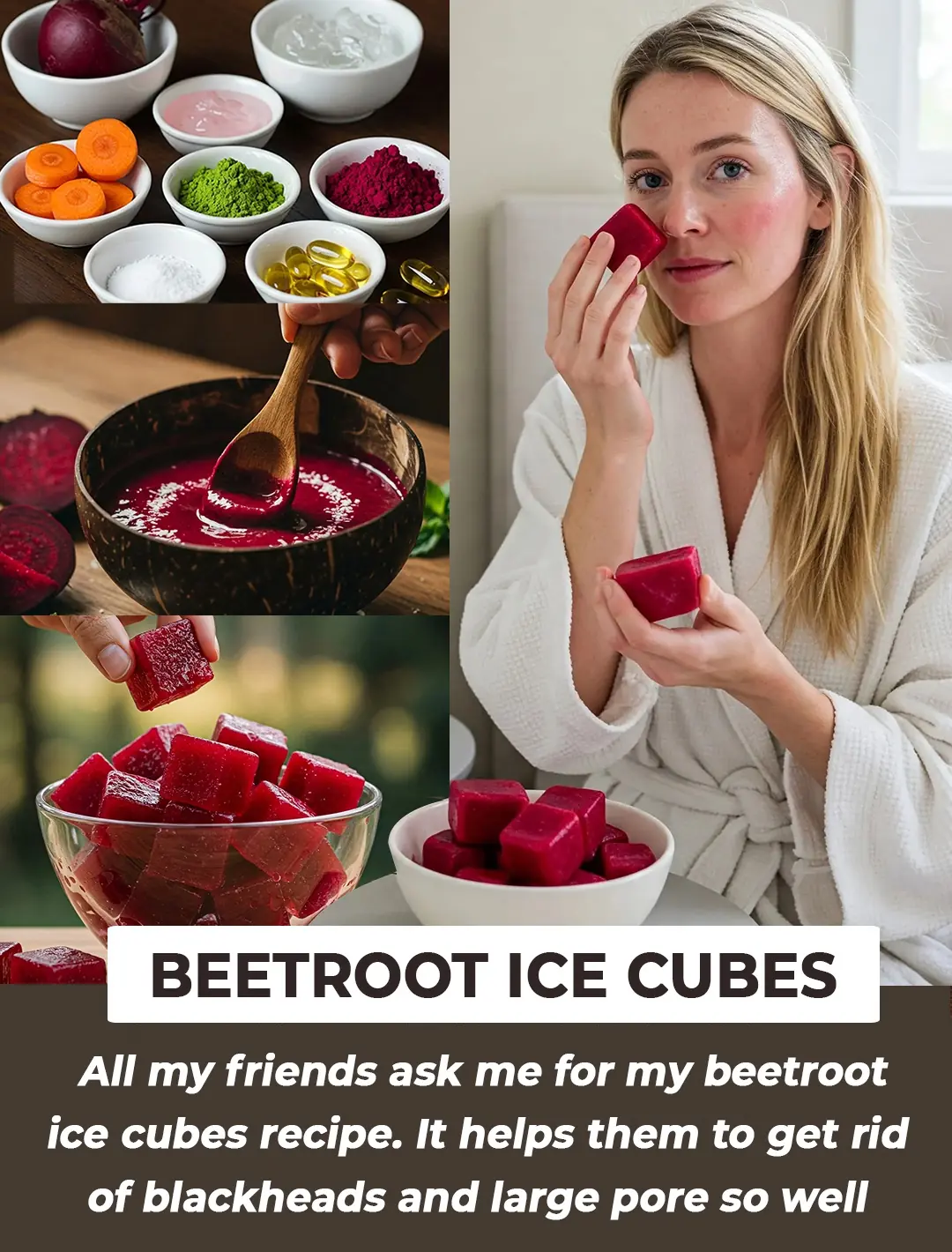
Homemade Beetroot Ice Cubes: The Best DIY Skincare Treatment for Glowing, Healthy Skin

The Ultimate 3-Step Tomato Clean-Up for Instant Glowing Skin: A DIY Guide for Radiant Skin
